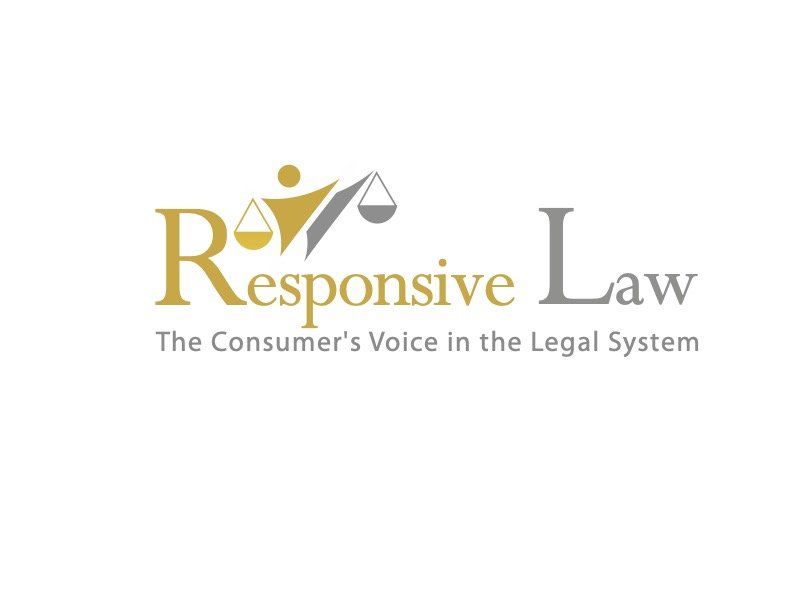US legal system can benefit from non-lawyer ownership
Crispin Passmore & Zack DeMeola • February 17, 2021
Our response to a blog in Law360 making the protectionist case for resisting reform

This blog first appeared [paywall] in Law360 on February 16, 2020
Let's leave the alarmism throughout Austin Bersinger and Nicola Rossi's recent Law360 guest article, "UK Is Proof Non-lawyer Ownership Threatens Legal Profession," behind and, instead, look to decades of facts, research and experience when discussing regulatory reform.
Let us start with the basics. Contrary to the assumption in Bersinger and Rossi's article, there is no U.K. legal or regulatory jurisdiction. Scotland and Northern Ireland, two of the constituent elements of the U.K., have not undertaken the same sorts of reforms as those in England and Wales, as cited in the article.
And in terms of evidence, Bersinger and Rossi's entire argument hinges on just a single report, ignoring the surfeit of independent evaluation that has consistently found regulatory reform in England and Wales to be delivering a number of incremental improvements over time: better complaints handling, more innovation, more legal service providers, and more opportunities for lawyers to offer their ethical expertise to the public. Moreover, it is important to understand the context for regulatory reform across the pond to understand what those outcomes might mean for change in the U.S. So, let's back up, put hyperbole to one side, and make sure we get the facts straight.
Alternative business structures, or ABSs, were not introduced in England and Wales in a vacuum — the legal market was already liberal. There has never been an unauthorized practice of law regime in England and Wales; most legal services can be offered not only by lawyers in businesses owned by nonlawyers, but by anyone in any lawful business.
England and Wales have over 100 years experience of legal businesses outside of lawyer regulation. There is no significant evidence that there is greater harm to the public because of — or ethical problems that arise from — the involvement of nonlawyers in the delivery of legal services. And when we look to quality of service, the evidence shows that nonlawyers deliver at least as good legal advice as lawyers.
A 2008 paper
by Professor Richard Moorhead suggests that nonlawyers who specialize in a subject area were more likely to offer high-quality advice than solicitors. And further research
published in 2011 and commissioned by the Legal Services Board, the independent body responsible for overseeing the regulation of lawyers in England and Wales, demonstrated that nonlawyer will writers were as effective as solicitors — noting that solicitors and nonlawyers met the same standard. Based on the evidence, keeping nonlawyers out of the market is the wrong focus.
Also, to suggest that these entities are mainly about insurance companies capturing law firms is, at best, crudely reductive. ABSs are entities in which regulated lawyers deliver regulated legal services in businesses owned by a mix of lawyers and other people. ABSs are now nearly 10 years old in England and Wales — the first opened in late 2011 — and around 10%
of regulated law firms are now ABSs.
ABSs in England and Wales cover the whole law firm market — from nonprofits serving the poorest and most vulnerable clients and solo practitioners that have taken a husband or wife into ownership (perhaps for tax reasons) to local and regional multidisciplinary practices, regional firms floated on the stock market, global multi-disciplinary practices, and even U.S. law firms with a presence in England and Wales.
The reason that ABSs have been an attractive model in the personal injury market is changes in the law covering referrals and costs. Insurers already received income for referring clients to law firms, but in 2012 that was outlawed in the U.K. through the Legal Aid, Sentencing and Punishment of Offenders Act; clever lawyers instead advised law firms and insurers to create joint ventures that were ABS, thereby avoiding the need for a referral fee altogether.
And while the personal injury market is significant, it is just one part of the legal market — and one part of the ABS picture. Included is everything from legal services for low-income people to will writing, corporate legal services, and law for small businesses, technology businesses and everything else. There are over 1,000 ABS firms
working across the market, and personal injury is just one part of the ABS picture.
If we do choose to focus on personal injury, the picture is resoundingly positive. There is no evidence that personal injury firms have become less ethical as a result of nonlawyer ownership. A 2016 report by the Solicitors Regulation Authority suggests that the ethical issues in the personal injury market are linked to solicitor behavior and traditional law firms rather than nonlawyer ownership.
Furthermore, allegations made to the SRA about personal injury firms are investigated less than the rest of the market after initial screening. If anyone has lingering doubts about ABSs, we urge them to trawl the disciplinary findings of the Solicitors Disciplinary Tribunal. There, they will find a steady stream of solicitors and traditional law firms found guilty of ethics breaches, but they will struggle to find much evidence of the same from nonlawyer owners of ABSs.
This is no surprise. Wider evaluation of England and Wales reforms suggests that ABSs improve consumer focus, complaints handling and innovation. The Centre for Strategy & Evaluation Services carried out independent research into the impact of reforms
including ABS. Its findings, published in 2018, are unequivocal:
"The impact of these reforms has been gradual and incremental. Early indications show that users of legal services are beginning to see benefits.Introducing ABSs and MDPs, and removing restrictions on firm ownership, have allowed new entrants (including foreign law firms, firms owned by professional services firms, local authority owned firms and retail brands) into the market. This has resulted in improved access, choice and quality of service for legal service users and innovation in provision.There was no evidence to suggest that these reforms have detrimentally impacted, or resulted in a greater risk to, users of legal services."
These findings are backed up by prior independent research. In 2015, Enterprise Research Centre conducted the largest ever survey
of innovation in law firms and found that:
"The adoption of ABS status has a positive effect on innovation. All else being equal, ABS Solicitors are 13-15 percent more likely to introduce new legal services. The implication is that the wider adoption of ABS status would be likely to increase the range of legal services on offer."
The truth is simple. ABSs in England and Wales is not a fly-by-night operation, conducted behind closed doors by rapacious capitalists, arriving in the legal market to strip profits and eviscerate ethics. Instead, since reforming its regulations, the England and Wales legal system has seen steady improvements in its legal market.
These include more choice for consumers, more technology to help increase access, and more opportunities for solicitors to offer their ethical expertise to clients. In addition, the number of solicitors has grown every year
and the number of law firms remains steady — with small and local firms continuing to thrive where they deliver what their customers want.
Perhaps this is why U.S. Supreme Court Justice Neil Gorsuch wrote in his 2019 book, "A Republic, If You Can Keep It" that "ABSs were indeed serving the needs of the poor and middle class, not just or even primarily the wealthy" and that "it's no surprise that some U.S. Jurisdictions have appointed committees to study reforms just along these lines."[1]
Bersinger and Rossi tell us to demand evidence that changes will result in benefit. What we do have is evidence that these reforms have been successful in England and Wales, and there is no reason — and certainly no evidence they provide — as to why these outcomes cannot also be achieved in the U.S.
Indeed, if we are to answer the clarion call for evidence, why is it that we don't also demand evidence that our current rules do what it is they purport to do?
There is no evidence that the business practices prohibited by the American Bar Association's Model Rule of Professional Conduct 5.4 compromise the independent judgment of lawyers. Absent the need for Rule 5.4 to protect the independent judgment of a lawyer — protection amply afforded elsewhere in the rules[2] — the lack of any real evidence behind Rule 5.4 is alarming, given that the rule's economic restrictions have had severe consequences for lawyers and for people in need of legal services.
For example, the rule has condemned law firms to systemic inefficiency. Lawyers are not allowed to bring in business partners with expertise in business, marketing or technology. Instead, many lawyers spend much
— if not most — of their day-to-day time on administrative tasks and work related to marketing and earning new clients.
To make matters worse, lawyers' ability to innovate or scale the services they provide is hampered by Rule 5.4's prohibition on taking capital investments from sources outside lawyer partnerships. Handicapped by structural inefficiency and unable to leverage modern tools for growth, lawyers are at a severe disadvantage to competitors in a tech-driven economy.
And the inefficiency of Rule 5.4's economic regulations has significantly contributed to an environment where lawyers must charge fees that most people in the U.S simply cannot
afford. Lawyers can look inward and kid themselves as much as they want, but consumers of all sorts — from low- and middle-income individuals to small-business owners and global companies — are turning to alternative providers. According to the 2019 Altman Weil Law Firms in Transition
study, 63% of lawyers indicated their firms were losing business to corporate law departments and 14% reported losing business to alternative legal providers.
And unregulated companies such as LegalZoom or Rocket Lawyer are serving an enormous and previously untapped market for affordable legal services, and they have the ability to scale in a way lawyers do not. Unless things change, they are also not subject to the same ethical rules that lawyers must follow.
Utah, Arizona and the other jurisdictions exploring regulatory innovation understand these issues. Despite Bersinger and Rossi's speculative concerns, both Arizona and Utah's reforms retain restrictions against impermissible conflicts of interest in legal ethics rules based on the common law fiduciary duty of loyalty — including those based on personal interests of lawyers that are implicated in the nonlawyer ownership situation discussed by Bersinger and Rossi.
In both states, a lawyer participating in an ABS and the ABS entity together need to be able to ensure that the lawyer can participate within the ethical standards of the rules. Lawyers remain subject to the rules of professional conduct — including conflicts rules — within new entities permitted in Arizona and in Utah. The entity itself is also responsible for compliance with conflicts rules in Arizona, and, in Utah, entities can only join its regulatory sandbox with lawyers if they are able to structure their businesses to conform to the rules.
Moreover, the Office of Legal Services Innovation, the regulator of new legal services in the Utah sandbox, closely monitors the potential for consumer harm by monthly or quarterly inputs of detailed data required from service providers — a proactive and preventative regulatory standard far more rigorous than the reactive, disciplinary standard applied to lawyers in the U.S. No easing of these rules and principles is contemplated in any of the other jurisdictions now considering regulatory reform, either.
Ultimately, nontraditional entities will be regulated differently, and, unlike other jurisdictions, new alternative legal service providers in Utah
and Arizona
will actually be subject to ethical oversight. What Arizona and Utah are implementing, and what is being considered now elsewhere, is removal of absolute prohibitions against economic arrangements between lawyers and nonlawyers, which have the effect of discouraging multidisciplinary collaborations, holistic practice, and innovation in legal services delivery.
With all of this evidence before us, it's difficult not to see the arguments against regulatory reform stemming more from fears about competition than concerns about ethics or the potential for public harm.
In fact, Bersinger and Rossi tell us directly that what they're really worried about is "being put out of business by nonlawyers," noting that what needs protection is "our interests, our profession and our livelihoods," and demanding as "dues-paying members" that "our" bar associations and leadership support "us" in the fight.
They forget that, as the New Jersey Supreme Court wrote in 1995 in In re: Opinion No. 26 of Committee on Unauthorized Practice of Law, the "ultimate touchstone" for regulating legal services is "the public interest," and that "it is not a power given to us in order to protect lawyers, but in order to protect the public."[3]
The current drive for regulatory reform in multiple U.S. jurisdictions reflects a realization on the part of judges, bar leaders and legal practitioners that regulation can no longer be about lawyers protecting themselves. Rather, it must focus on the interests of consumers in obtaining affordable and high-quality legal services regardless of who provides them, with regulation that reasonably and appropriately protects the public from real rather than speculative risks and harms.
[1] Neil M. Gorsuch, A Republic, If You Can Keep It 259 (Random House 2019)
[2] See, e.g., Rule 1.7 (prohibiting a lawyer from representing a client if there is a significant risk that the representation will by materially limited by the lawyer's responsibilities to a third person) and 1.8(f) (directing that third-party payers cannot interfere with a lawyer's independent professional judgment)).
[3] In re Opinion No. 26 of Committee on Unauthorized Practice of Law, 654 A.2d 1344, 1346, 139 N.J. 323, 327 (1995)
My collaborator and co-author for this piece is Zachariah DeMeola. Zack is the director of legal education and the legal profession at the Institute for the Advancement of the American Legal System, at the University of Denver. He is directing IAALS' independent evaluation of the regulatory sandbox in Utah.

The Legal Tech Fund ran the best event for innovators int he legal market that I have found. TLTF 2023 was a a great opportunity to learn new things but best of all were the connections made and friends seen. These enabled new discussions and deeper debates about technology, capital deployment and liberalisation. TLTF 2024 is just one year away - I'm already excited.









